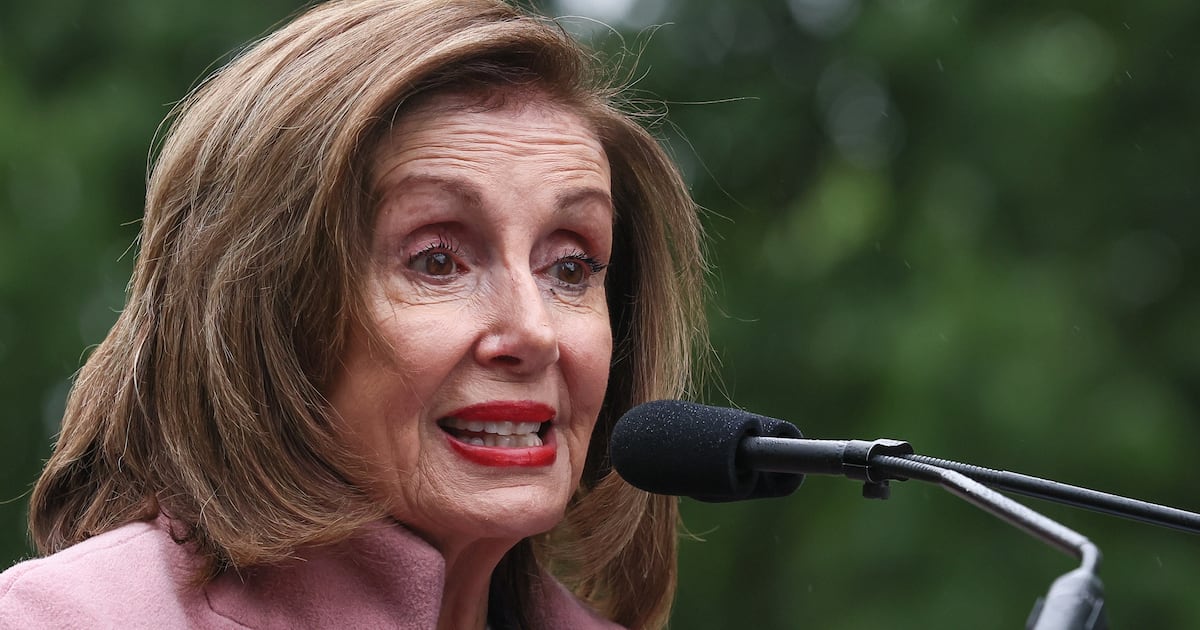
Last May, when the United Nations dispatched Bill Clinton to Haiti, it felt as if Clinton was slinking off the world stage. That changed Tuesday afternoon. Hours after an earthquake leveled Haiti’s capital, the world’s most famous U.N. envoy was manning his own multimedia situation room. He gave updates to Wolf Blitzer on CNN. He wrote an article for Time magazine assuring readers that “Haiti isn’t doomed.” In The Washington Post, Clinton sketched out a relief plan for what he called “one of the great humanitarian emergencies in the history of the Americas.”
It felt awfully… presidential. Clinton, whom Barack Obama and Hillary Clinton had assured us would be kept far from the center of American foreign policy, was, by chance events, back in the center of it.
Clinton “has the moral authority to call the world to action,” Paul Begala said.
Just as he did after the Asian tsunami in 2004, the former president has been working nonstop to raise cash and coordinate relief efforts. Clinton’s online appeal for emergency donations generated more than $3.7 million in 24 hours, his aides said. Another program would raise even more money through text-message donations. George W. Bush joined Clinton’s fundraising effort at Obama’s behest.
• Full coverage of Haiti • John Avlon: Shameless Haiti Wingnuts It wasn’t supposed to happen this way. When Hillary Clinton accepted the secretary of State job, she was afraid that Bill would be a nuisance, whether by his speechifying-for-hire or freelance diplomacy. The new book Game Change, by John Heilemann and Mark Halperin, includes a scene in which Hillary Clinton tells Obama that, in the authors’ paraphrase, “You know I can’t control him, and at some point he'll be a problem.” Still, last August, Bill Clinton traveled to North Korea and helped secure the release of two American hostages.
Former aides say Clinton’s interest in Haiti is far more personal. The Clintons spent their honeymoon there in 1975.
“His attraction to Haiti and Africa is the very thing that repulses so many people—the poverty, the grinding destitution, the seeming hopelessness,” said Paul Begala, who worked as an adviser to Clinton. “This has been a long-term commitment of his.”
It also has the feel of penance for one of the Clinton presidency’s biggest foreign-policy headaches. In 1991, Haitian President Jean-Bertrand Aristide was ousted in a military coup. By 1994, Clinton was ready to invade the country and restore Aristide to power, despite the protests of many Democrats. “I’m going to do it anyway,” Clinton said at the time, according to historian Taylor Branch, who recounted the conversation in his book The Clinton Tapes. “It’s the right thing.”
Only a last-minute peace deal brokered by Jimmy Carter, Colin Powell, and Sam Nunn staved off the invasion. Aristide returned to power, and left peacefully when his term expired two years later. But much to Clinton’s embarrassment, Aristide undermined his successor and then, upon being reelected in 2000, allowed conditions to worsen until he was deposed again. Far from backing the George Washington of Haiti, Clinton had backed a man who only extended Haiti’s cycle of corruption and poverty, said Robert M. Perito, the director of the Haiti program at the United States Institute of Peace.
Clinton remained a beloved figure in Haiti, and re-embraced the country after leaving office in 2001. He was Haiti’s chief fundraiser and its nonstop cheerleader, a lonely advocate for the poorest country in the Western Hemisphere. "What I want to do is help the Haitian people take control of their own destiny," he would later say. Since its creation in 2005, the Clinton Global Initiative says it has raised about $200 million from over 150 donors for Haiti.
The U.N. called up Clinton after Haiti’s previous natural disaster, a series of tropical cyclones that hit the country in 2008, killing 800 people. Ironically, on Clinton’s first visit as the new special envoy, he called for better construction practices so that buildings wouldn’t crumble so easily—an eerie premonition as Haiti’s presidential palace collapsed Tuesday. But last year, Haiti seemed to be on the rebound. There was new foreign investment secured in part by Clinton, trade preferences from the U.S. Congress, a relative period of political peace under President René Préval.
After Tuesday’s earthquake, Préval is homeless, and an estimated 50,000 are dead. It falls again to Clinton to stump for a country facing a disaster as big as any in its history. Besides savoring the spotlight, the Big Dog has a personal stake in the matter.
“He has the moral authority to call the world to action,” Paul Begala said.
(Disclosure: Begala is an occasional contributor to The Daily Beast.)
Bryan Curtis is a senior editor at The Daily Beast. His story about his grandfather’s softball career is in The Best American Sports Writing of 2009.
Benjamin Sarlin is a reporter for The Daily Beast. He previously covered New York City politics for The New York Sun and has worked for talkingpointsmemo.com.







